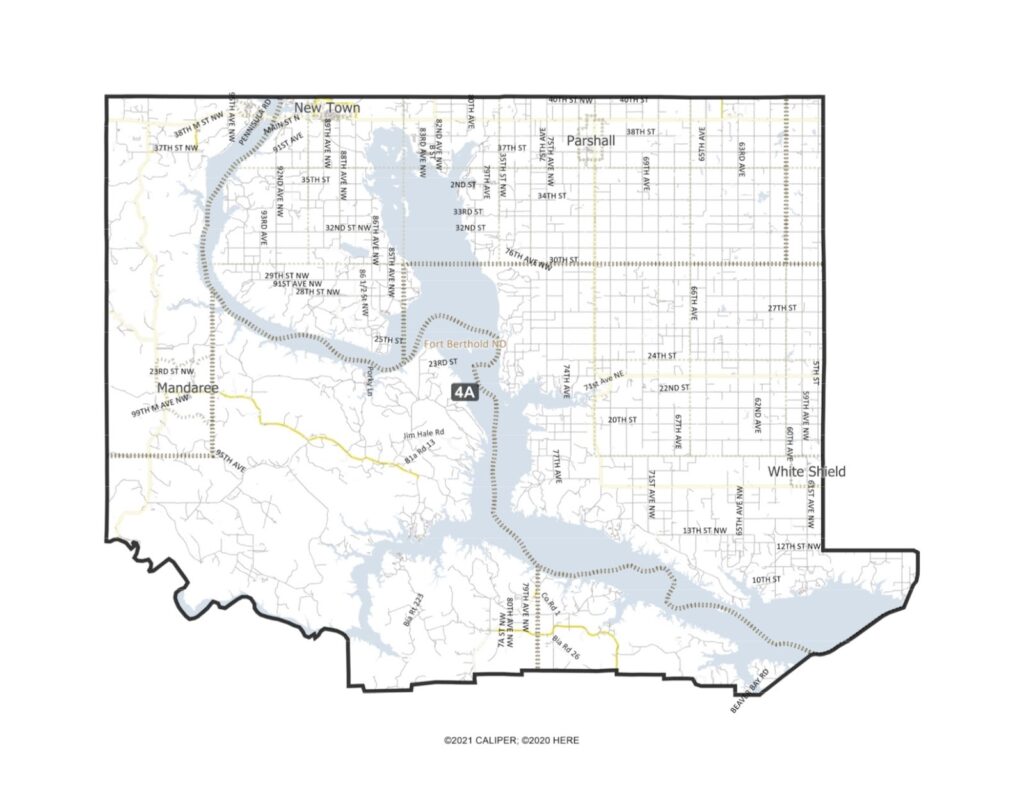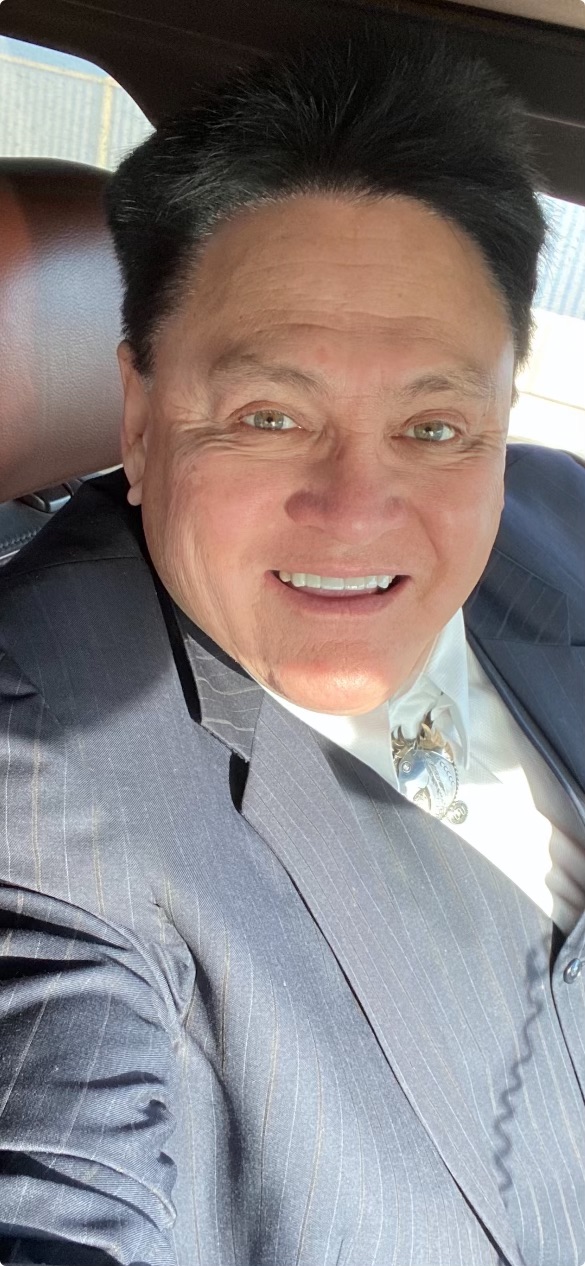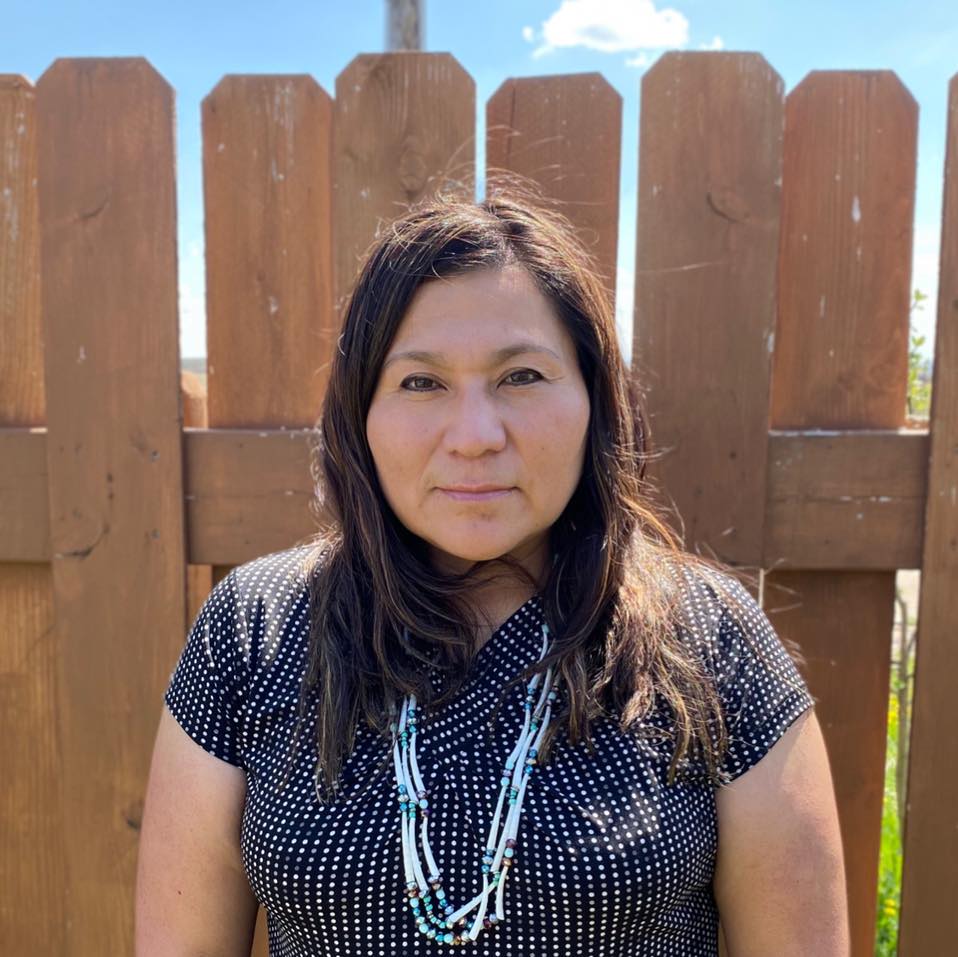Thousands peacefully protest

District 4A candidates Lisa Finley-DeVille and Ronald Brugh discuss their plans to enhance voter accessibility for Indigenous communities. (Photo credit/ Jodi Spotted Bear)
Mandan Hidatsa and Arikara Nation residents can choose between two Native candidates for state representative in the Nov. 5 North Dakota elections. Incumbent Lisa Finley-DeVille and Ronald Brugh, president of War Pony Energy, are competing for the single position in District 4A, which encompasses the Fort Berthold Indian Reservation.

DeVille won her current four-year seat as soon as 2020 Census figures proved population distribution warranted a new majority Native district in the state Legislature. “We fought for redistricting to have a voice at that table,” she said. Brugh ran for tribal chairman of the Mandan Hidatsa and Arikara Nation in 2022, “We want to make sure that Native Americans are more involved in all the mechanics that go on in the state,” he told Buffalo’s Fire.
Candidate Backgrounds
Brugh, on the Republican Party ticket, and DeVille, running as a Democrat, are both MHA citizens from Mandaree, North Dakota.
“We need more Native people with the background and interest in our future needs. Our grandchildren, our children and how we’re going to protect and take care of them are important because we are a huge part of the state now because of our oil revenue.”
Ronald Brugh, candidate for North Dakota State Representative District 4A
Brugh grew up on a ranch. He graduated from the University of Mary with a bachelor’s degree in business and began studying for his master’s degree in the early 1980s. For nearly 40 years, he has worked as a landman in the oil industry. When the oil boom began on Fort Berthold around 2007, he quickly established his business, War Pony Energy.

Although he did not win the 2022 tribal election, he remains committed to his goal of pursuing transparency in public office.
Brugh noted that he is close to Republican District 4 Senate candidate Chuck Walen, running unopposed. They attend the same church and have known each other for nearly a decade, he said. Walen sued Gov. Doug Burnum to achieve the approval of the majority Native District 4A, in a case on appeal at the U.S. Supreme Court.
Finley-DeVille has been an environmental advocate for decades. She earned a bachelor’s in environmental science from Nueta, Hidatsa and Sahnish College, as well as an MBA and a master’s in management from the University of Mary.
While on the board of North Dakota Native Vote, she testified and helped draw the new district maps. “Since we redistricted, the door is open for any other Native American individual to run,” she said.
Voters and the MHA Nation joined the Walen v. Burgum lawsuit to support the legality of House District 4A. In May, the U.S. District Court ruled in favor of the new voting map. However, the North Dakota Attorney General’s unexpected appeal to overturn this ruling has left the MHA Nation and individual voters to independently defend their rights before the U.S. Supreme Court, according to the Native American Rights Fund.
Legislative Focus
In the Legislature, Finley-DeVille has worked to reform and create policies that prioritize the interests of Indigenous communities. She has focused on environmental issues and advocated for social justice.
She worked with the North Dakota Secretary of State’s office to reopen a Dunn County voting location so “our elders don’t have to travel a whole hour and a half to go vote,” she said. “The roads are dangerous and high traffic,” she added.

If re-elected, Finley-DeVille plans to work on 15 bills related to the environment, economy, public safety, social issues and more. She also intends to establish a Native center for displaced families in Bismarck.
Another priority for her is developing a state Legislature curriculum for high school students, focusing on how candidates receive endorsements and how to run for office. “I’m very interested in that curriculum to make sure that our people understand the process because there are four governments we have to deal with: our county, our tribe, our state and the federal government,” she said.
Brugh’s three main priorities are the environment, the economy and taxation. “The environmental impact that we’re suffering is huge,” he said. “I’m interested in the ways that it will be affected here… If you look at long-term issues, the industry has affected the west part of the reservation, which is most critical.”
Community Engagement
Brugh wants to ensure that American Indians have a voice in the oil and energy sector. “We need more Native people with the background and interest in our future needs. Our grandchildren, our children and how we’re going to protect and take care of them are important because we are a huge part of the state now because of our oil revenue,” he said.
Both candidates want to address public safety concerns related to North Dakota Highway 23, which runs through Parshall and New Town on the Fort Berthold Indian Reservation.. Brugh stated that he will collaborate with tribal leaders as long as they are willing to talk. “It’s my obligation to communicate with them constantly,” he said.
Brugh is committed to holding regular town hall meetings and forums. He plans to distribute surveys to each of the six segments of the MHA Nation: White Shield, Parshall, New Town, Four Bears, Mandaree and Twin Buttes. “I could also send out questionnaires to all representatives in their districts and ask them what concerns I can help them with,” Brugh said.
“It’s very important that they vote because non-Natives are making decisions that affect our lives. I want to make sure that we are part of that when those decisions are being made.”
Lisa Finely-DeVille, incumbent North Dakota State Representative District 4A
His goal is to ensure that his constituents’ voices are heard. “The majority of my district is Native American,” Brugh said. “With that in mind, I would provide that opportunity for everyone.”
Finley-DeVille is also interested in holding town meetings and forums.
Message to Voters
Brugh stated that if elected, he is prepared to lead effectively. “When I set my mind to something, I try to be a leader at it,” he said. “I want to be a winner for the people. I’m going to take every opportunity that I can to represent everyone in a fair and just way.”
Finley-DeVille urges residents of District 4A to make their voices heard by voting. She hopes to continue representing the American Indian community in Fort Berthold and Bismarck. “It’s very important that they vote because non-Natives are making decisions that affect our lives,” she said. “I want to make sure that we are part of that when those decisions are being made.”
Adrianna Adame
Former Indigenous Democracy Reporter
Location: Bismarck, North Dakota
See the journalist pageMHA Nation and voters defend voting subdistrict at Supreme Court. Native American Rights Fund. (2024, May 15). https://narf.org/walen-nd-redistricting/
© Buffalo's Fire. All rights reserved.
This article is not included in our Story Share & Care selection.The content may only be reproduced with permission from the Indigenous Media Freedom Alliance. Please see our content sharing guidelines.
Steve Sitting Bear elected as chairman
This article was produced for ProPublica’s Local Reporting Network in partnership with Honolulu Civil Beat
ProPublica
Inspired by her grandparents, Tonah Fishinghawk-Chavez proves that caring for the community is an action, not just a word
Police and family looking for Angel Mendez and Zayne LaFountain
We paused some services to investigate and restore systems and we’re grateful for your patience







